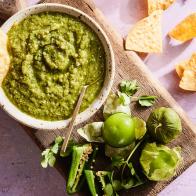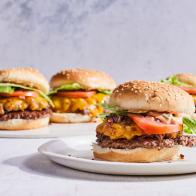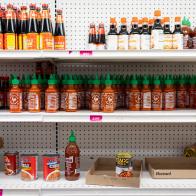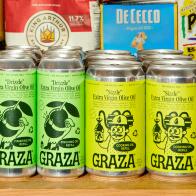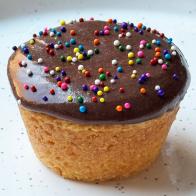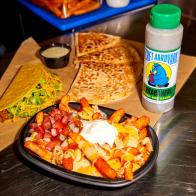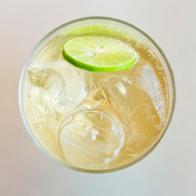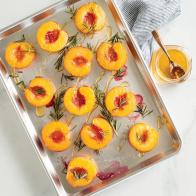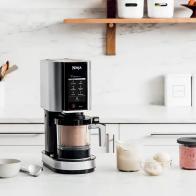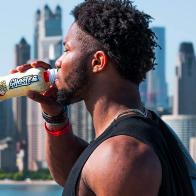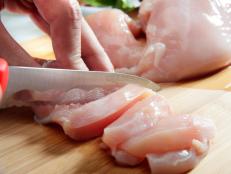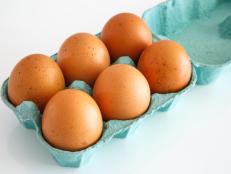CBD 101: Here's What You Need to Know
Read this before trying the latest wellness trend.

NataGolubnycha
With the legalization of cannabis, especially medical marijuana, in numerous states, interest around CBD is at an all-time high (no pun intended). CBD pills, tinctures, creams, oils, and food and beverages served up in pretty packaging are backed by tons of glowing reviews on social media with users swearing off anxiety meds in favor of a daily dose of CBD. But can CBD really live up to the hype? Here's what you need to know before giving CBD a try.
What Is CBD?
There are two main compounds found in the cannabis plant. Cannabidiol, also called CBD, is a non-intoxicating chemical compound found in the cannabis or hemp plant. CBD will not make you "high." The more commonly known compound is called tetrahydrocannabinol (THC), which is responsible for the "high" feeling associated with marijuana use.
What Are the Health Benefits Associated with CBD?
CBD users and business owners claim CBD may be an anti-inflammatory, anti-anxiety, anti-spasmodic and pain reliever, though many of those claims remain largely unproven, according to medical researchers. There is significant research to support CBD for the treatment of epilepsy, and the CBD-based drug called Epidiolex was approved by the USDA as a form of treatment. There is ongoing research on the role of CBD in treating Autism, migraines, acne, ADHD and Alzheimer’s. “There is a huge void of research in terms of confirming most effective dosing for various symptoms, so most of this is done by trial and error and self-titration,” Eric Baron of the Cleveland Clinic Neurological Institute told Vox.
Is CBD Legal?
All cannabis and cannabis-derived products, which includes CBD, remain illegal under federal law. CBD is legal under individual state laws in states that have legalized CBD, recreational marijuana or medical marijuana (if you have a doctor's note). CBD from the hemp plant (cannabis containing less than 0.3% THC) is legal under the Federal Farm Bill 3014, section 7606, but it's still murky, according to experts. “So much of [the CBD market] is operating in the absence of regulation, and states take widely different approaches,” Daniel Shortt, an attorney who focuses on cannabis law in Seattle, Washington, told Quartz. “You have to know your local law.”
How Can You Take CBD?
There are many ways to take CBD including gel caps, tinctures and creams, but the mode of administration depends on the condition and individual preference. “A topical salve works best with regionalized pain and inflammation while a softgel or edible offers system-wide anti-inflammation, pain relief, and anti-anxiety effects,” claims Janice Newell Bissex MS, RDN, a Holistic Cannabis Practitioner at Jannabis Wellness. “A tincture, placed under the tongue for a minute or two takes effect quicker than a softgel or edible but the duration of relief is shorter acting (2-4 hours versus 8-12 hours).” Doses can vary from 2 mg to 100 mg, so it's important to work with a medical professional to decide what's right for you.
What About CBD in Food and Beverages?
You've likely seen plenty of CBD products including sparkling waters, candy and other edibles on the market. And CBD cocktails and dishes are on the rise at restaurants, too. There have even been rumors that Coca-Cola is working on a wellness beverage with CBD. The benefits that come from CBD-infused food and beverages depend on the quality of the CBD and form (CBD isolate verses a whole plant). Bissex explains that CBD works best when combined with other cannabinoids and terpenes found in the cannabis plant as they work synergistically. It is also interesting to note that “CBD is better absorbed and the effects are longer acting when taken along with a fat source,” says Bissex. For example, to get the most benefit from a CBD beverage, Bissex says it should be consumed along with food containing some fat like nuts, trail mix, nut butter on crackers, yogurt (not fat-free!) or guacamole and tortilla chips.
What To Know Before You Buy
According to a recent study by researchers at the University of Pennsylvania, nearly 70% of the CBD products sold online are mislabeled, meaning some contain no CBD at all, while others contain amounts much higher than what's listed on the label. The study also found that 1 in 5 CBD products contain traces of THC. CBD products sold online or to consumers without a medical marijuana card should not contain any THC. Bissex advises buying CBD products that that are "full-spectrum" (containing all the cannabinoids in the plant, minus the THC), organically grown, and from a company that provides independent lab testing to prove that what is claimed is actually in the product. Bottom line: Make sure to read labels carefully before purchasing and speak with a dispensary pharmacist or store representative if you’re unsure about a product.
Toby Amidor, MS, RD, CDN, is a registered dietitian and consultant who specializes in food safety and culinary nutrition. She is the author of The Greek Yogurt Kitchen: More Than 130 Delicious, Healthy Recipes for Every Meal of the Day.
*This article was written and/or reviewed by an independent registered dietitian nutritionist.
Related Links:


